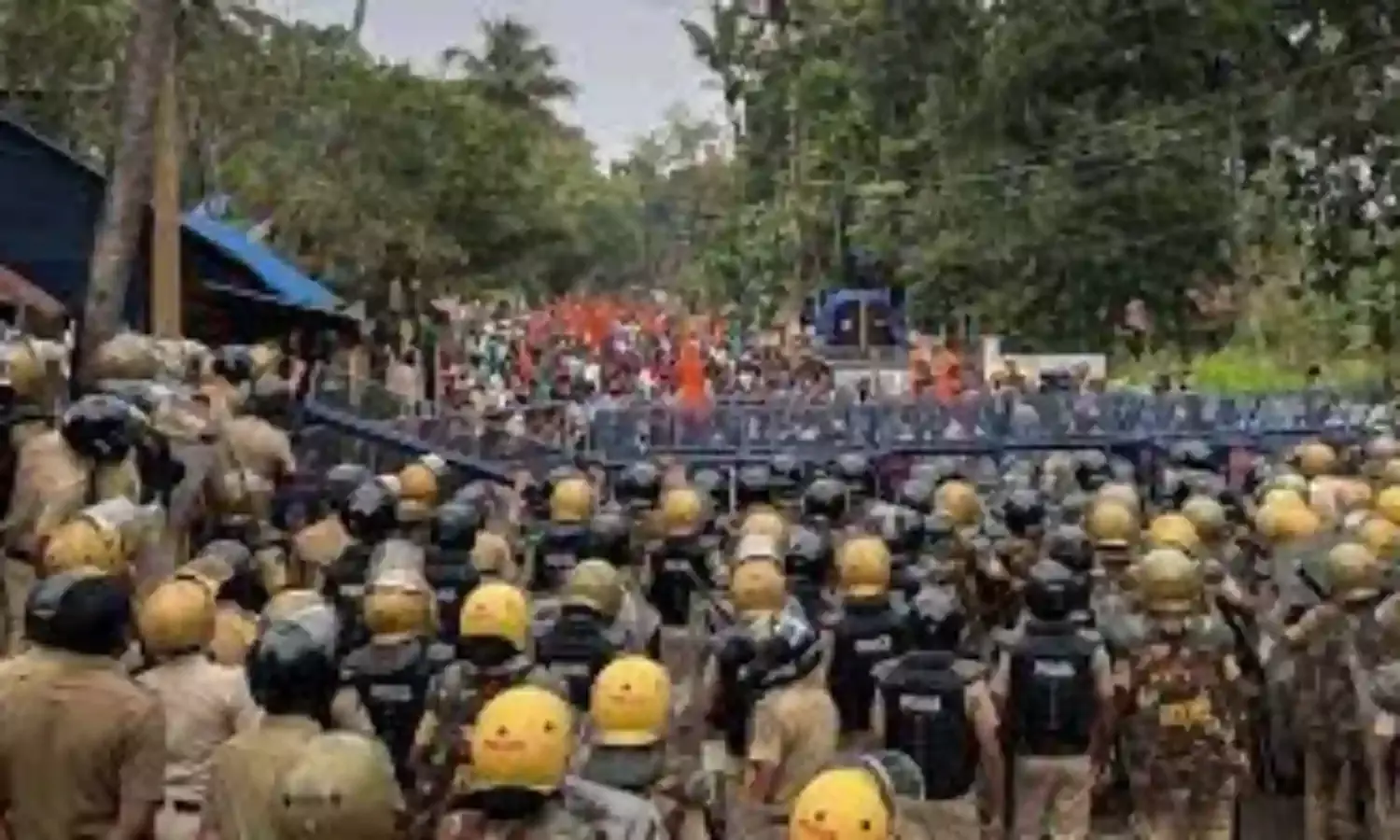Vizhinjam Transhipment Hub Protests Escalate
Over 20 people were injured in the stone pelting and fist fights, damages amount Rs 85 crores

Protests against the Vizhinjam Transhipment Hub in Kerala's Trivandrum district have taken a violent turn in the last few days. Both anti and pro-port protestors, and several policemen, have been injured.
The clashes began on Saturday when a group of anti-port protestors arrived at the entrance of the port. They, reportedly, attempted to block about 35 trucks that were carrying granite to the port. Soon, pro-port protestors arrived at the spot and the situation quickly escalated. According to reports, over 20 people were injured in the stone pelting and fist fights.
Some of the protestors were immediately booked under various charges including conspiracy and incitement to violence. On Sunday night, a violent mob of over 2,500 people armed with sticks and stones entered the Vizhinjam Police station and demanded the release of protestors who were arrested. More than 30 police personnel were injured and several vehicles were damaged, resulting in a loss of around Rs 85 crores.
The Vizhinjam police have slapped charges on almost 3,000 protestors, including several priests of the Latin Catholic Church, which has been leading the anti-port agitations since its inception. Fr Eugene Pereira, convenor of the agitation was also booked.
On Monday, an all-party meet was called to address the issue, but they failed to arrive at a consensus. Apart from demands like rehabilitation of the fishermen families, one of the main demands of the anti-port protestors is that a thorough study on the environmental impact of the port be done and that the construction of the port be halted until then.
Environmentalist Sreedhar Radhakrishnan said, "From the beginning, the port has been in the eye of the storm simply because it wasn't environmentally viable. The conditions of the sea bed and the depth of it could all have been positive, but the fact that it will affect the coast was something which was there for all to see and understand. The environmental impact assessment had explicitly stated this. Experts in marine geology have all been saying that. The National Green Tribunal (NGT) case itself was around this.
"The NGT officially gave the go-ahead in 2016 with a lot of conditions. But these conditions cannot be met because it would eventually happen. So it wasn't a workable proposal. The financial structure of the port itself is questionable as it is not going to be useful for the state at all. All this was very clear.
"Now the environmental impact is happening. The coast is losing its beaches. With beaches, accretion happens and then erosion happens. Now the problem is the rate of erosion is much higher than the rate of accretion and gradually this will affect the northern part of the region. As the coast gets lost, the fishing community and their lives will also be affected.
"This coast is already inundated because of natural factors like cyclones. The more the coast becomes vulnerable, the more the community also becomes vulnerable. That's one of the reasons the community is up in arms against it.
"To bring one perspective, they are asking for rehabilitation for themselves, support for their livelihood, and they want their beaches back. But their most controversial demand is that the port's construction be stopped, a study be conducted, all the remedial measures the study recommends be carried out before they proceed with the construction.
"They are not actually asking that the construction be scrapped altogether. This is exactly what the precautionary principle as enshrined in the Supreme court order and other global laws are saying. That's what the fishermen have been demanding. You cannot just say no. Now, they have irritated the community so much that they are provoked."
While the LDF-led Kerala government has constituted a study and agreed to almost all other demands, the issue is that they want the construction to continue even as the study is being done. Meanwhile, the community is saying that as the construction continues, it is killing the coast and destroying their livelihood.
Sreedhar added, "If the construction is halted, the state government will be more serious about completing the study quickly, if not, what will happen is the study will go on and on for years till the construction is completed. Unfortunately, that's where we are."
Joseph Vijayan, a social worker and petitioner in the Supreme Court against the project said, "the state is trying to suppress the agitation by all means. It is branded as anti-national and terrorist. Of course, there are some miscreants trying to make this a communal issue and a majority-minority issue, as the majority of the fishing community in Trivandrum are Catholics. Unfortunately, the left government has also fallen for this."



